Do essential oils expire? Ways to extend their shelf life
If you’ve just begun using essential oils, the price of these tiny bottles may come as a surprise.
When you hear that one bottle can last you a long time, the next thought that will surely come to your mind is – Do essential oils expire?
After all, you don’t want to invest in something that will go rancid in a few weeks.
Well, we’ve got some reassuring news for you.
Most essential oils are very stable and can last for years without breaking down or changing their aroma.
A few of these oils are more prone to oxidation, but if you protect them from heat and exposure, they too can last longer.
Read on as we teach you more about essential oils, do essential oils expire, and how to make them last longer.
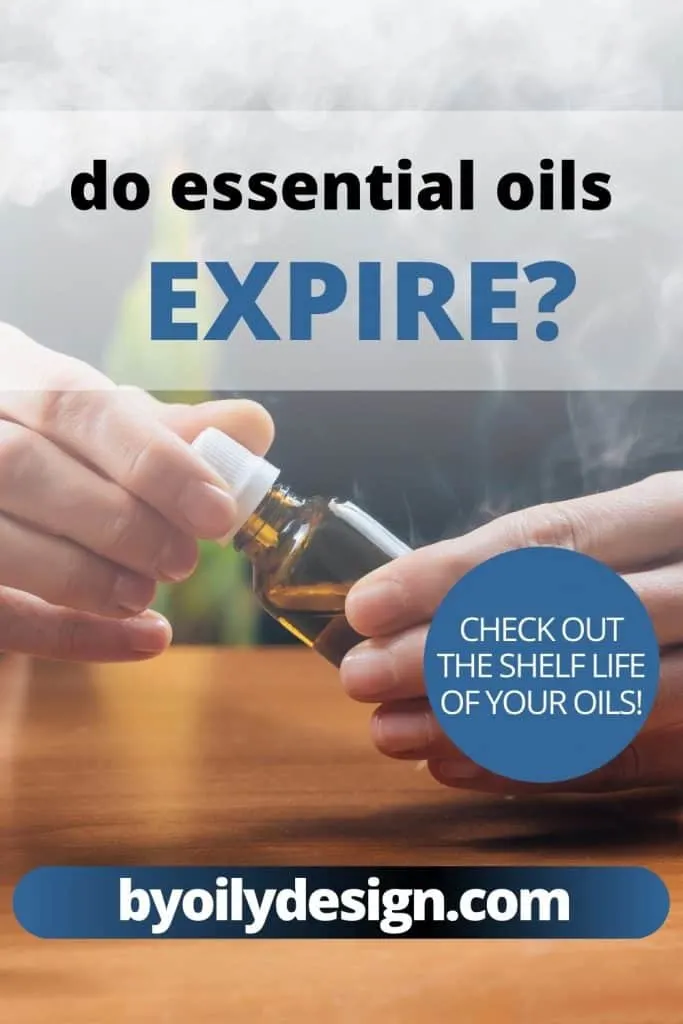
*This post contains affiliate links to the essential oils and other products I talk about in the post. Purchasing them here from my blog is no extra cost to you but I do earn a commission that helps in the cost of running this blog. Thanks for your support!
What is the shelf life of essential oils?
Essential oils are natural and pure products, but that does not mean that they have an indefinite shelf life.
They do not grow mold, or mildew because they have chemical properties that will not support the growth of it.
But these tiny bottles of health can get oxidized, deteriorate and lose potency.
In other words, the constituents that make up these oils can break down and turn into something different.
How long does a bottle of essential oil last?
This usually depends on your handling and usage.
The process of oxidation and deterioration starts as soon as you open your bottle.
Oxidation occurs much faster at a higher temperature and greater exposure.
So, it is crucial to store essential oil in dark-colored glass bottles, away from heat and sunlight.
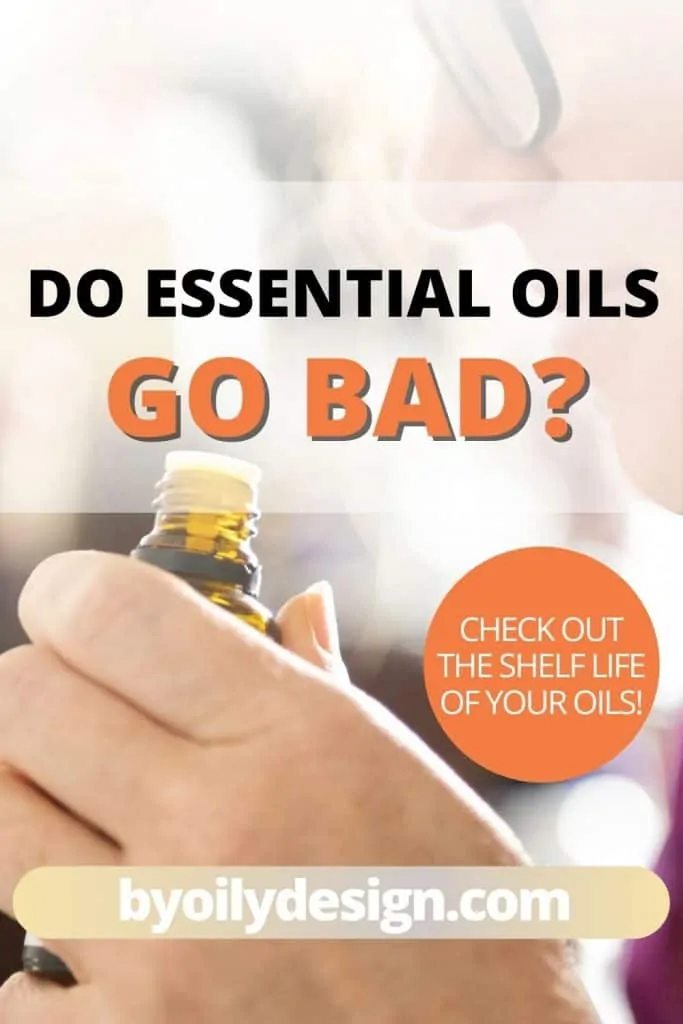
What causes essential oil oxidation?
The three things that significantly impact the shelf life of essential oils are oxygen, heat, and sunlight.
Essential oils contain active ingredients like monoterpenols, sesquiterpenes, monoterpenes, sesquiterpenoids, and monoterpenoids, which give them their therapeutic properties and benefits.
When exposed, oxygen in the air can change the chemical composition of essential oils.
Exposure to direct sunlight and heat can also change the chemical composition of these oils.
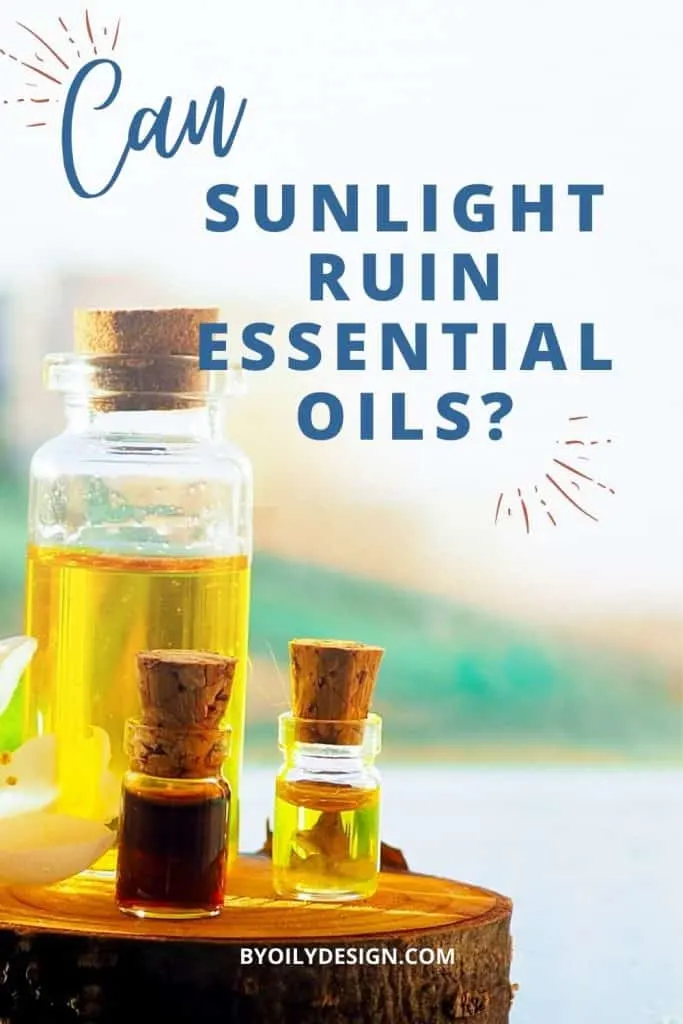
So, how long do essential oils last?
Different oils have different chemical compositions, so their shelf life is also different.
The method of distillation, the quality of botanical used, and the bottling and storage of the essential oil by the supplier can also directly affect the shelf life of essential oils.
Here’s a list of the average shelf life of essential oils, when they are treated and stored correctly –
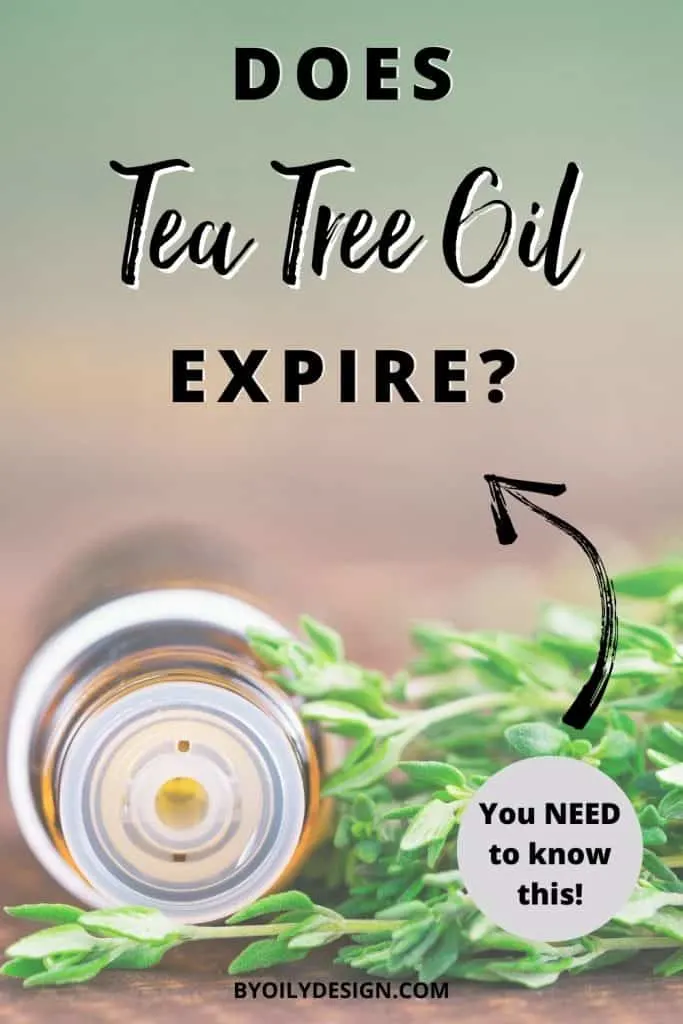
1. Oils that contain monoterpenes – 1 to 2 years
Monoterpenes, especially limonene, are prone to oxidation, and thus have the shortest shelf life.
These include citrus, neroli, frankincense, lemongrass, tea-tree, pine, angelica root, cypress, and spruce oils.
Tea tree oil has many therapeutic uses when applied to the skin, and its popularity has grown over the world in recent years.
Many first time users ask the question – Does tea tree oil expire?
Yes, like all other essential oils, tea tree oil also expires.
According to the Australian Tea Tree Industry Association, the shelf life of tea tree oil is around six months after it's opened, and up to two years when unopened.
2. Oils with a high percentage of monoterpenols, esters, aldehydes, oxides, ethers, phenols or ketones – 2 to 3 years
Most of the other essential oils belong to this category.
Lavender essential oil, one of the most popular and versatile essential oils, belongs to this category and can last for three years.
3. Oils that contain sesquiterpenes and sesquiterpenols – 4 to 8 years
Oils like sandalwood, patchouli, and vetiver have the longest shelf life.
Though their aroma improves over time, their therapeutic quality goes down, so you should use them within four years.
Copaiba balsam, gurjun balsam, myrrh, and some cedarwood also belong to this category.
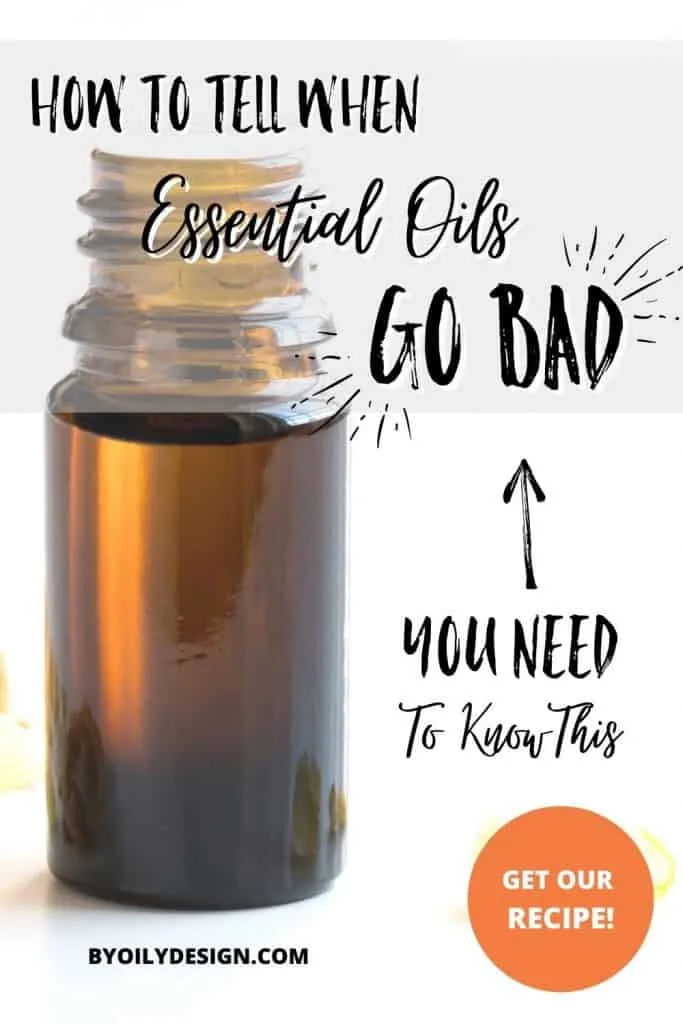
How can you tell if an essential oil has gone bad?
Here’s what you need to look out for to determine that your essential oil has oxidized and degraded
1. Does your oil smell different?
A good indicator of oxidation is that the oil may become less aromatic and may start smelling differently.
It is difficult to figure out this difference unless you have a fresh oil bottled from the same source with which you can compare it.
2. Does your essential oil look different?
Some essential oils, especially citrus oils, become cloudy when they oxidize. Check the color and clarity of your oil if you have a doubt.
3. Has the consistency changed?
The consistency of the oil also changes when it degrades.
For instance, an essential oil that is usually smooth and fluid may become thicker.
How to dispose of expired essential oils safely?
Once it is confirmed that your essential oil has oxidized and degraded, the next thought that comes to mind is how to dispose of expired essential oil?
You should never dump old essential oils down the drain.
These oils are highly concentrated, flammable substances that should be treated like other hazardous material.
Here are some of the ways to dispose of expired essential oil –
- If your oil has lost its therapeutic properties, you can still use it for aromatic purposes. Use it as a toilet freshener.
- You can use old lemon oil as a homemade glass cleaner.
- Use your old essential oil in a diffuser to add aroma to your room.
- Put a bowl of baking soda in your shed and put your expired essential oils in it. They will evaporate and make your outdoor space smell good.
- Take expired essential oils to a local hazardous waste site.
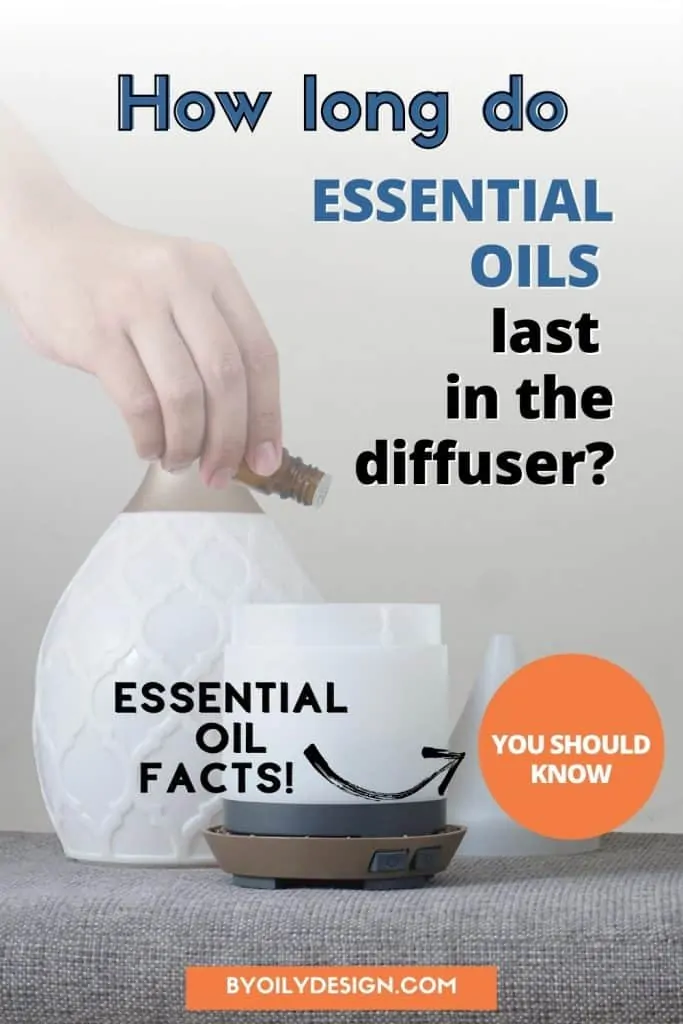
How long do essential oils last in a diffuser?
Diffusing is one of the safest ways to enjoy the benefits of essential oil.
There are several types of diffusers available, like nebulizers and ultrasonic diffusers.
Diffusing for 15 to 20 minutes is enough for a standard size room.
You can diffuse 10 to 15 drops of essential oil in a nebulizer and 4 to 5 drops of oil per 100 ml of water in an ultrasonic diffuser, depending on the note of the oil.
Peppermint, eucalyptus, and lavender oils evaporate within two hours.
Rosemary, chamomile, and geranium take up to four hours to fade.
Some oils like ginger, cedarwood, and myrrh, can last for more than five hours and linger for days.
You should never leave unused oil or water in your ultrasonic diffuser for more than a day. If the machine is not in use, you should ensure that it is empty and dry.
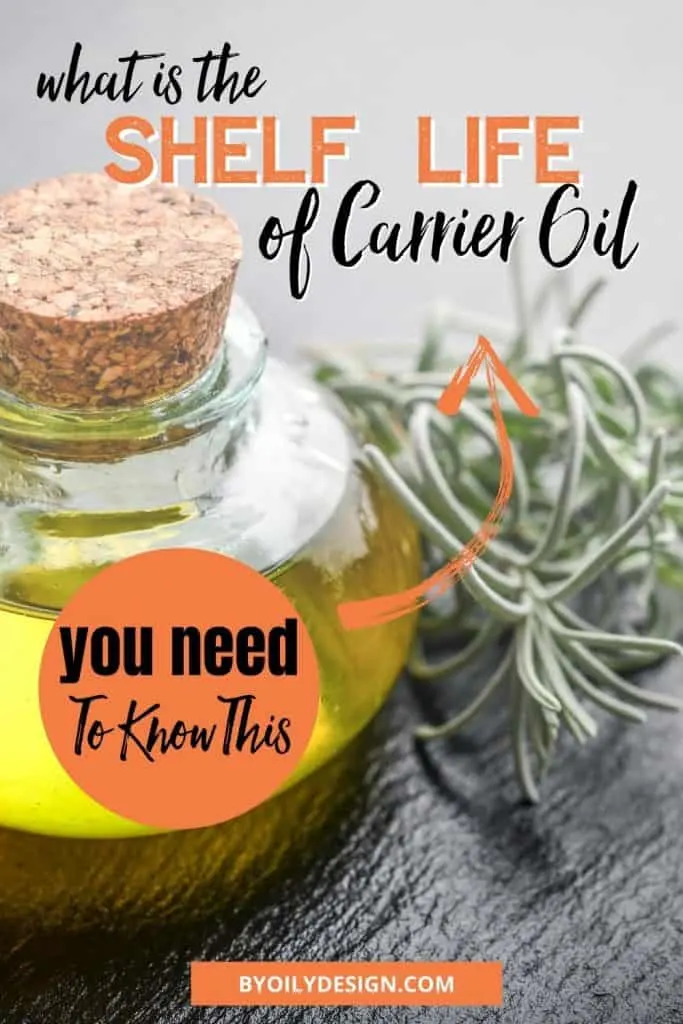
Shelf life of carrier oils
A carrier oil is a base oil that’s used to dilute essential oils before they are applied to the skin.
These oils are derived from seeds, kernels, and nuts of plants.
They do not have a strong aroma, nor do they diminish the properties of the essential oil.
Carrier oils have a limited shelf life, so they should be used within six months.
Some carrier oils can stay up to two years when stored in a refrigerator.
Here is a list of the shelf life of carrier oils that are commonly used-
1. Fractionated coconut oil- 2+years
2. Sweet almond oil – 1 year
3. Grapeseed oil -1 year
4. Jojoba oil – 2+ years
5. Olive oil – 2 years
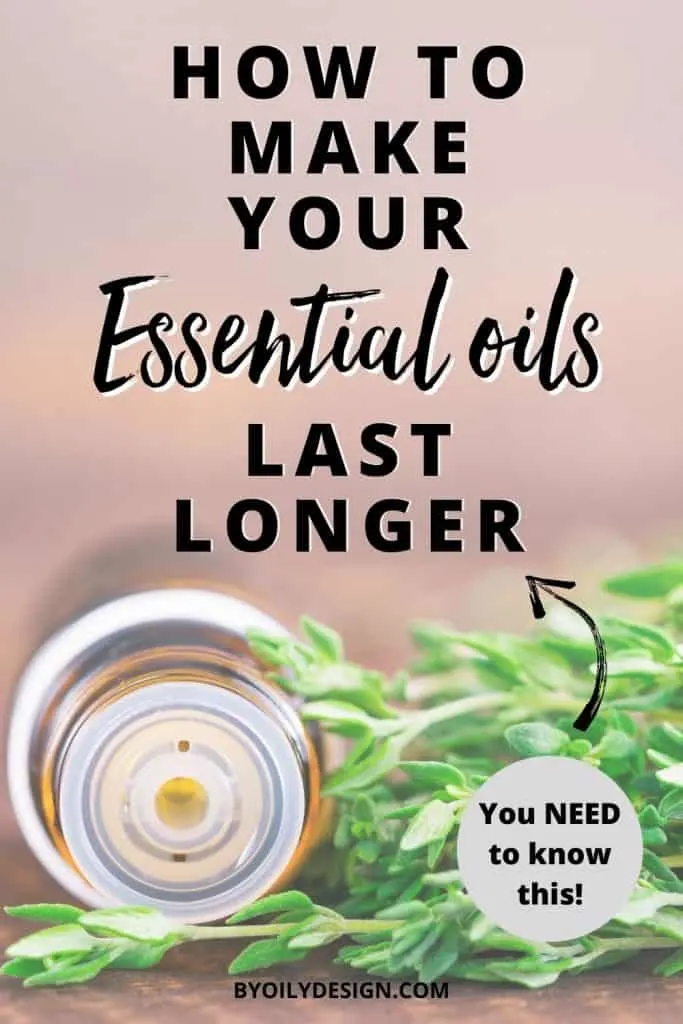
How can you make your essential oils last longer?
Are you working on a budget and wondering how can I make my essential oil last longer?
A few steps can ensure that your essential oils last for a longer time, and their quality also does not go down.
1. Store in proper containers
Store your essential oil in dark glass bottles to retain their therapeutic and aromatic value. Amber glass bottles are suitable for storing oils as light does not penetrate too much through these bottles.
2. Keep the lid tightly closed
People often wonder – Do essential oils evaporate?
Well, the answer is yes, essential oils do evaporate.
Essential oils are volatile substances and can evaporate fairly quickly if the cap is not replaced tightly.
You must ensure that the container is airtight.
Or you will be like me and go to grab your favorite oil only to find the new bottle mostly empty because of evaporation. Let’s just say my feelings were just a little hurt.
3. Store in a cool place
Essential oils degrade when you put them in direct sun. Keep your essential oil in a cool, dark place like your refrigerator.
Yes, I have seen the beautiful essential oil wall displays people use for their oils.
To be honest, I want an essential oil wall display like this one so bad I can’t stand it.
I’ve decided that when I invest in one, I will most likely put my almost empty bottles on the shelfs. The rest I will keep stored in a dark cool closet or my most expensive ones in the refrigerator or freezer.
Yes, you can safely store your oils in the freezer. It’s actually a great place to store them.
4. Prevent contamination
Use your essential oil carefully to prevent contamination. Rollers can pull contaminated particles back into the bottle.
I try my best to never touch the top orifice of my essential oil bottle so that it stays clean and can’t get cross contamination somehow.
Final thoughts
The shelf life of essential oils depends on the main active ingredients that they contain.
Exposure to oxygen, sun, and heat can oxidize essential oils and make them lose their therapeutic value.
Essential oils can expire over time, but there are many ways to extend their shelf life.
The key is to store them properly and prevent contamination.
Now that you have the answer to the question – do essential oils expire, you can buy the essential oil of your choice and enjoy its sweet aroma and therapeutic benefits.
Want to get started using essential oils? I'd love to coach you!
When you sign up with me as your enroller you get amazing support and education.
I even have an FREE Essential oils reference app just for those that enroll with me! I want you loving your oils and getting the most out of them you can.
Ready to get started? Click on the below image and let's get the starter kit in your hands.
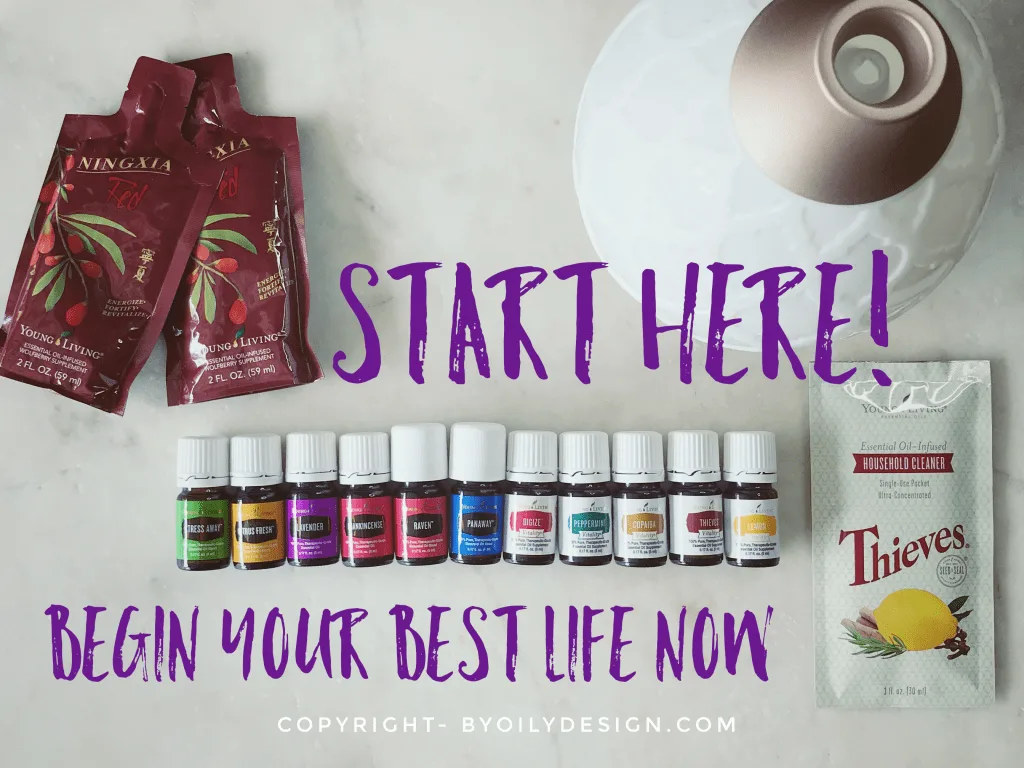

Written by Manveen Grewal , Edited by Ruth Rackley

